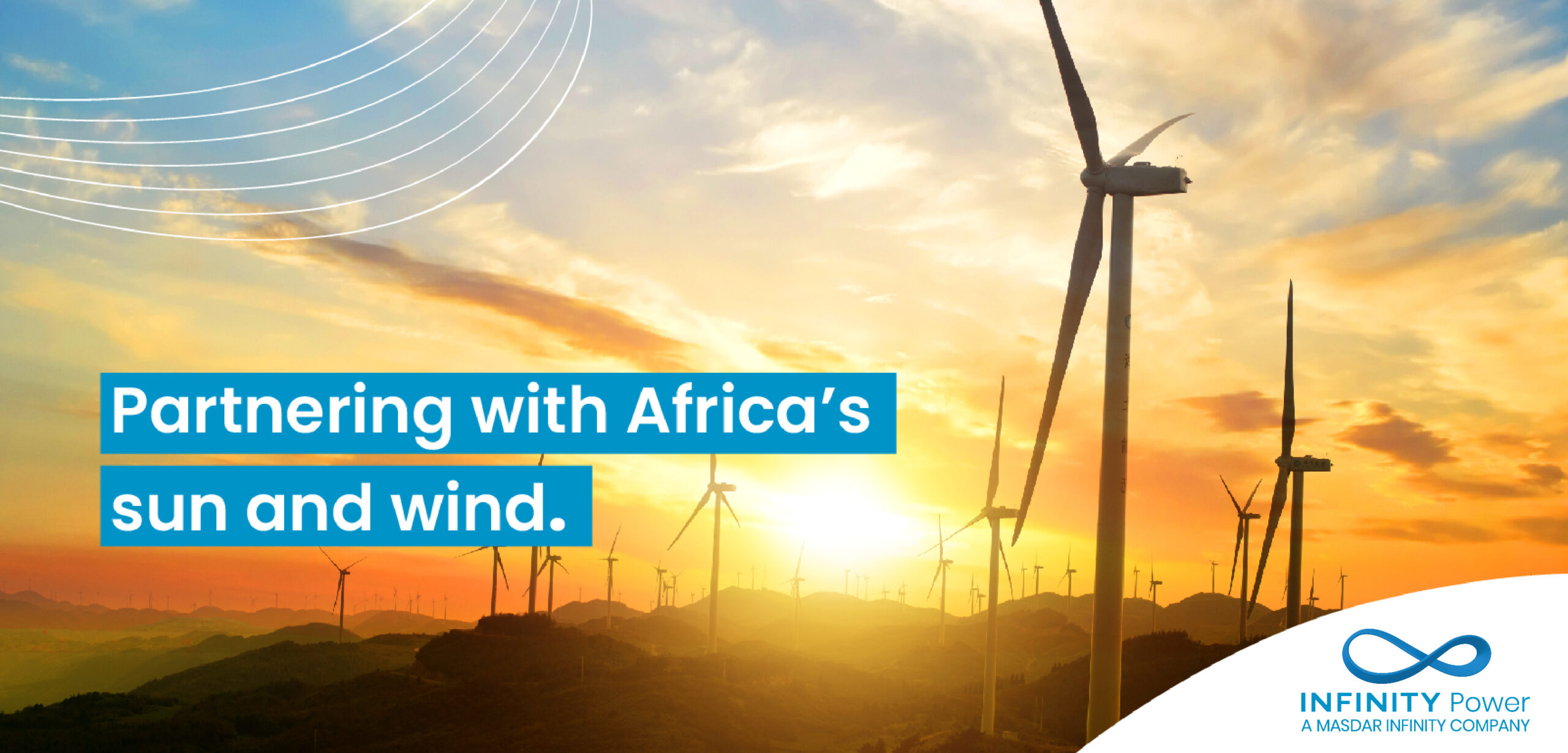- Egypt announces timetable for stake sales of renewables projects. (M&A Watch)
- Egypt signs land allocation agreement with 3 GW wind farm in Sohag. (Wind)
- Acwa Power gets the green light from Bangladesh for a 300 MW solar farm. (Solar)
- A new green energy investment company is launching in KSA thanks to an international alliance. (Investment Watch)
- The UAE moves forward with cloud seeding research. (Also on Our Radar)
- Global Air Quality Index offers a glimpse into where pollution levels stand. (Macro Picture)

Thursday, 31 August 2023
Egypt announces timetable for stake sales of renewables projects
TL;DR
WHAT WE’RE TRACKING TODAY
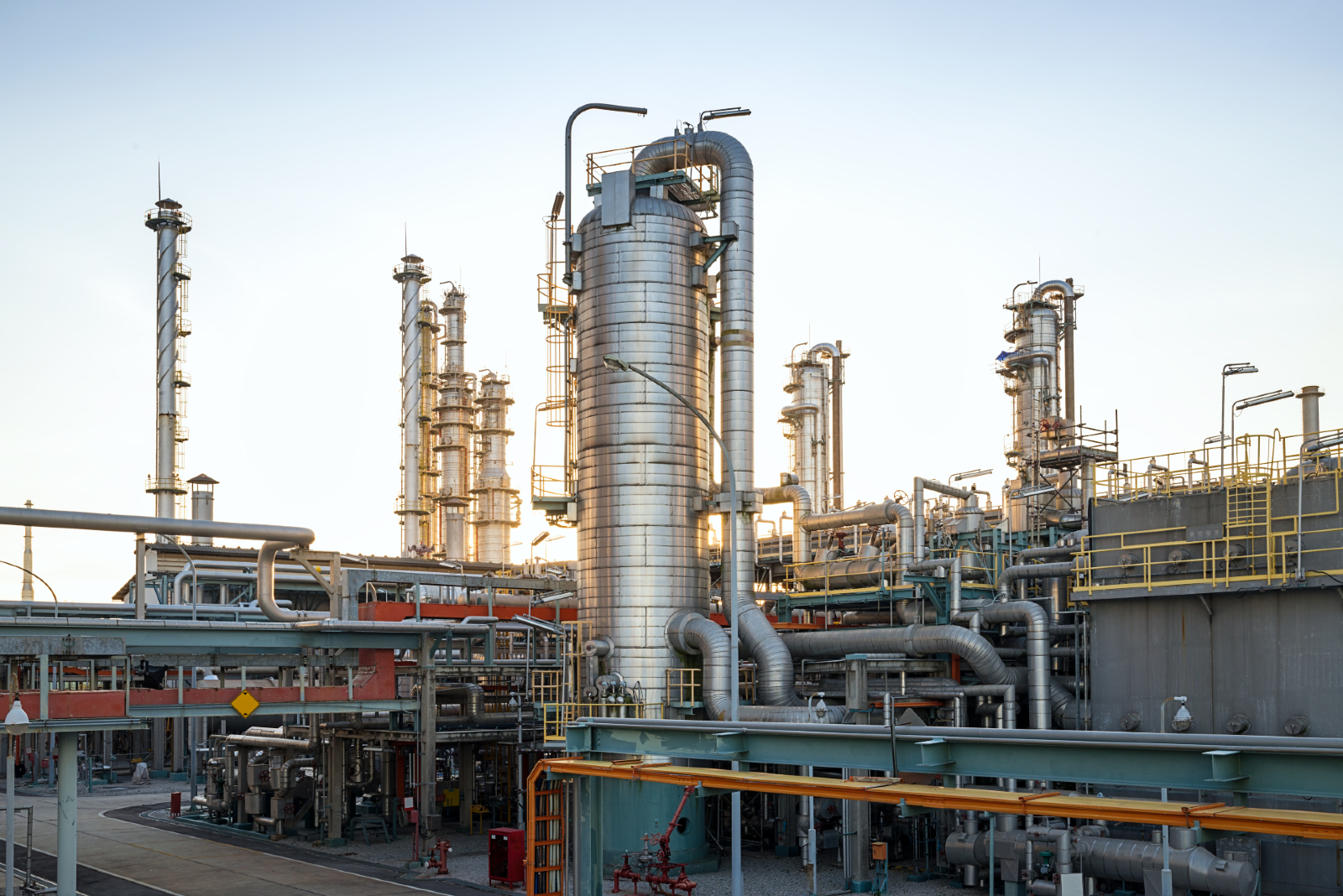
Good morning, ladies and gents. It’s another busy morning as we close out the week with an avalanche of updates coming out of Egypt. Shall we?
OUR TOP STORY- The Egyptian government has set a date for the sale of two wind energy plants, a combined-cycle power plant in Beni Suef, and several desalination plants before the end of the current fiscal year on 30 June 2024.
^^ We have all the details on this story and more in the news well, below.
THE BIG CLIMATE STORY OUTSIDE THE REGION- It’s quiet on the climate news front, but the IMF is ringing the alarm bell on climate change in a new report. Conflicts in fragile nations and war-torn countries in Africa are set to be aggravated on the back of climate change, leading to higher death rates and a falling GDP. The Washington-based lender estimated death from conflict as a share of the population could rise by c. 10% in fragile nations by 2060 under a high emissions scenario. Climate shocks would worsen hunger in the continent’s fragile countries, leading an additional 50 mn people into hunger by 2060.
And extreme economic losses: Cumulative losses in GDP reach 4% in fragile countries three years after extreme weather shocks in comparison with c. 1% in other nations, the IMF said. It expects droughts in fragile countries to slash around 0.2% from their per-capita GDP growth annually. As a result, incomes in fragile countries would continue to extend a decline behind those in other countries, it added. Reuters and Deutsche Welle picked up the story.
OVER IN COPLAND- Al Jaber urges donor countries to make early pledges to loss and damage fund: In an opening message addressed to the third transitional committee of the loss and damage fund meeting in the Dominican Republic this week, COP28 President Designate Sultan Al Jaber called on developed countries to make early pledges to the loss and damage fund (watch, runtime 1:41). “It is one thing to have a well-structured fund, but it will only be fully operational if it is actually funded,” Al Jaber said. He also urged the committee to ensure that the final recommendation for the operationalization of the fund is “clear, precise, and easily understood by all stakeholders,” while encouraging them to be creative in identifying funding sources to ensure the funds are “adequate and distributed efficiently.”
So in what stage are the transitional committee negotiations? The transitional committee is shifting from collecting information to agreeing on concrete recommendations on all aspects of the COP27 mandate for operationalizing the loss and damage fund The discussions — which are controversially taking place in closed sessions without input from civil society organizations — began on Tuesday and will conclude tomorrow. The submissions made by governments to the transitional committee — some of which had not yet been shared publicly before — are now posted on the UNFCCC website.
WATCH THIS SPACE #1- The Egyptian Cabinet approved a draft bill forming a national council for green hydrogen and its derivatives, according to a statement. The council will be led by Egypt’s Prime Minister and include members from various ministries including electricity, oil, justice, planning, finance, environment, military production and others. The council’s members will also include the heads of the Suez Canal Authority, Suez Canal Economic Zone, the General Authority for Freezones and Investment, and the Sovereign Fund of Egypt, the statement said.
What to expect from the council: The council aims to unify the state’s efforts in stimulating investments in green hydrogen and its derivatives, the statement said. It will be tasked with following up the country’s national green hydrogen strategy and updates if necessary. It will also adopt policies and mechanisms needed to implement the strategy and propose necessary solutions to resolve obstacles to investment in the sector. The council will also review related legislations for green hydrogen and its derivatives and amendments if needed, it added.
AND- There are plans for tackling demolition waste: Egypt is planning to establish a facility focused on repurposing demolition waste in a bid to manufacture products for its construction sector, according to a statement. Egypt’s Environment Minister Yasmine Fouad met with a delegation from Cairo-based Waterway Real Estate Development Company as well as delegates from an unnamed German research center to develop a strategy for realizing the target. The ministry has signed the draft contract for the project and is expected to hold another meeting with the country’s Building and Housing Research Center to discuss implementation steps for the recycling center.
WATCH THIS SPACE #2- KSA is handing out the G20’s highest energy subsidies: Saudi’s fossil fuel subsidies of USD 7k per capita are the highest among the G20, according to a report (pdf) by the International Monetary Fund. The kingdom allocated a cumulative USD 253 bn in implicit and explicit energy subsidies last year — 27% of its GDP — surpassing China, the US, and Russia by a wide margin. Elsewhere in MENA, Morocco set aside a total of USD 14 bn in fuel subsidies last year.
WATCH THIS SPACE #3- Share of fossil fuel in EU power mix is the lowest on record: The share of energy generated from fossil fuels in the EU is the lowest on record, decreasing by 17% y-o-y in 1H 2023 and reaching just 33% of total energy produced, Reuters reports, citing data collected by UK-based think tank Ember. The drop was driven by lower electricity demand, allowing the share of renewables to meet a bigger proportion of demand. Mild weather, consumption-cutting policies, and high gas and power prices due to Russia’s slashing of gas deliveries to Europe all contributed to the EU’s reduced energy demand. In May, coal produced less than 10% of EU electricity for the first time on record.
Battery storage projects could increase renewables yield further: EU countries including Spain and Poland have shut off solar power at times to avoid overwhelming power grids. Accelerating the deployment of battery storage on power grids could reduce the durations that renewables need to be curtailed when grids become overwhelmed, the newswire reports.
|
NON-CLIMATE REGIONAL HEADLINES:
- KSA: SRJ Sports— a sports fund recently formed by Saudi Arabia’s sovereign wealth fund (PIF) — has acquired a minority stake in the US’s Professional Fighters League under a global sporting expansion spree by the Gulf country. (Asharq Al Awsat)
- Egypt: The Egyptian Cabinet has announced the suspension of an earlier decision requiring state employees to work from home where possible as part of energy-saving measures rolled out by the government in late July. (Al Ahram)
MISSED OUR PREVIOUS FORUMS? The Enterprise Podcast has you covered: The Enterprise Podcast’s forum series has been bringing you audio recordings of what was said on stage at the Enterprise Exports and FDI Forum and Enterprise Climate Forum.
WANT TO LISTEN? Head to: Apple Podcast | Spotify | Google Podcast | Anghami | Omny.
IN THIS WEEK’S EPISODE- In our third panel from the Enterprise Climate Forum, EFG Hermes Research Managing Director and Head of Strategy Simon Kitchen joined us on stage to talk about how business leaders across global growth markets are coping with climate change — and the macro factors that are both shaping and constraining ways to act. Kitchen covers markets ranging from Egypt to Vietnam, Pakistan, Nigeria, Bangladesh and Kenya and regularly speaks with senior management from companies across the full spectrum of industries, from banks to electronics assemblers, garment markets to food producers.
***
YOU’RE READING ENTERPRISE CLIMATE, the essential regional publication for senior execs who care about the world’s most important industry. Enterprise Climate covers everything from finance and tech to regulation, products and policy across the Middle East and North Africa. In a nod to the growing geographical ambitions of companies in our corner of the world, we also include an overview of the big trends and data points in nearby countries, including Africa and southern Europe.
Enterprise Climate is published by 5am CLT / 5am Riyadh / 6am UAE Monday through Thursday by Enterprise, the folks who bring you Enterprise Egypt, your essential 6am and 3pm read on business, finance, policy and economy in Egypt and emerging markets.
EXPLORE MORE OF ENTERPRISE ON THE WEB — tap or click here to read EnterpriseAM, EnterprisePM, and The Weekend Edition on our powerful new website packed with reader-friendly features.
Subscribe to Enterprise Climate here or reach out to us on climate@enterprisemea.com with comments, suggestions and story tips.
***
CIRCLE YOUR CALENDAR-
Saudi Arabia will host the Sustainable Maritime Industry Conference from Monday, 4 September to Wednesday, 6 September in Jeddah. Organized by KSA’s Transport and Logistic Services Ministry, the event will feature over 50 speakers to spotlight sustainability, new technologies, and digitization efforts in the maritime industry. Speakers will include International Maritime Organization Secretary General Kitack Lim and World Ocean Council CEO Paul Holthus.
Kenya will host the Africa Climate Summit from Monday, 4 September to Wednesday, 6 September in Nairobi. The event will bring together government leaders and investors to share pathways to increasing Africa’s climate resilience and serve as a platform to inform and frame commitments, pledges, and outcomes, ultimately leading to the development of the Nairobi Declaration on Climatic Change.
India will host the G20 Heads of State and Government Summit from Saturday, 9 September to Sunday, 10 September in New Delhi. A G20 Leaders’ Declaration will be adopted at the conclusion of the summit, stating commitment towards priorities discussed and agreed upon during previous ministerial and working group meetings through the year, the organizers note. The last meeting of G20 energy ministers in July failed to reach consensus on a fossil fuel phasedown as several major producing nations, led by Saudi Arabia, blocked the move. Among other expected announcements, the Global Biofuels Alliance is scheduled to be launched at the summit.
Check out our full calendar on the web for a comprehensive listing of upcoming news events, national holidays and news triggers.
M&A WATCH
Egypt announces timetable for stake sales of renewables projects amid privatization drive
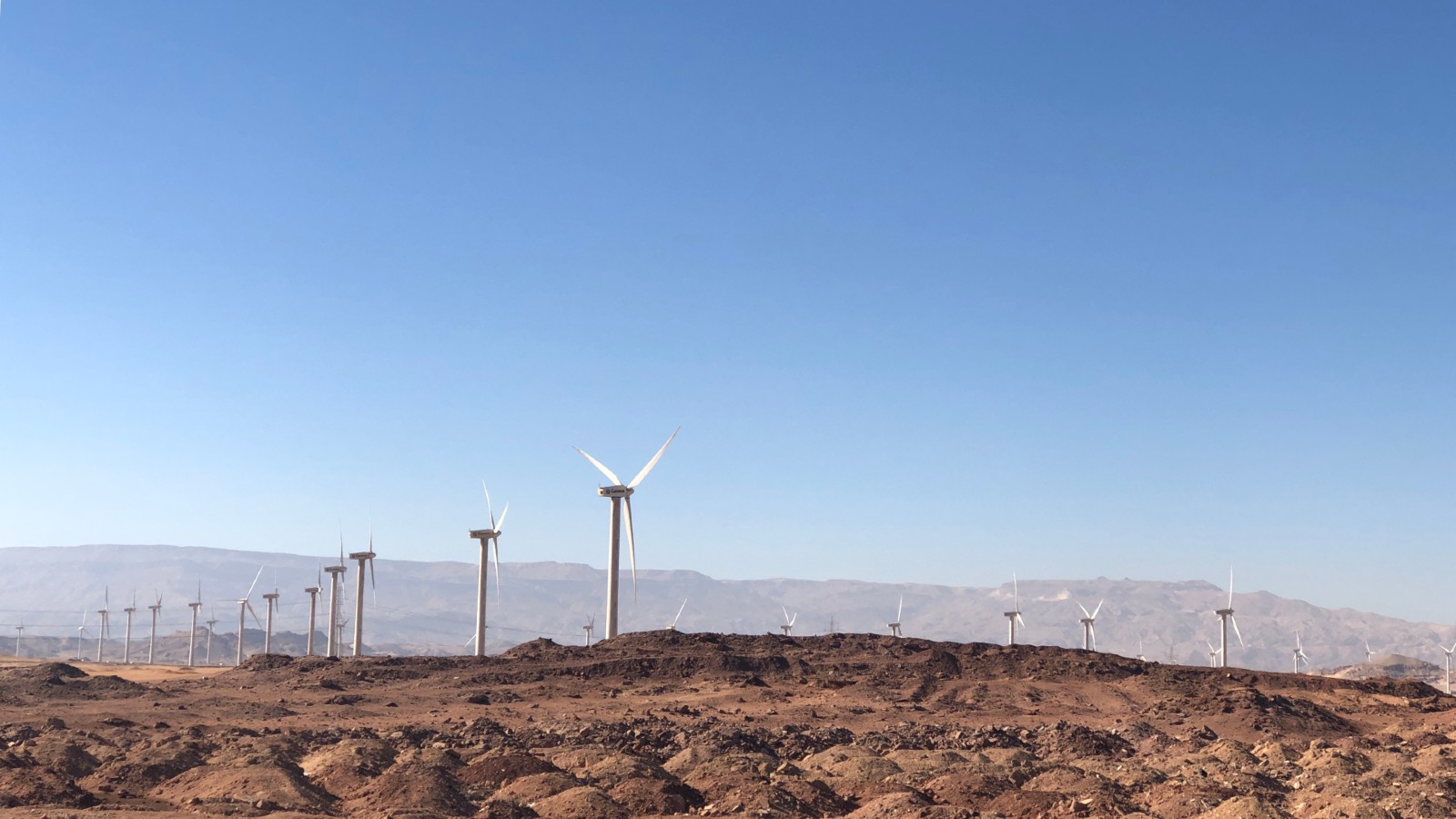
We know more about Egypt’s plans for selling renewables assets: The Egyptian government has set a date for the sale of two wind energy plants, a combined-cycle power plant in Beni Suef, and several desalination plants before the end of the current fiscal year on 30 June 2024, an updated state ownership policy document that was leaked to the press showed. The sale comes under an ambitious plan by the government to bring in USD 5 bn in investment through the privatization of state-owned companies and assets.
First up, Gabal El Zeit wind farm: The document said that the Sovereign Fund of Egypt (SFE) and New and Renewable Energy Authority (NREA) will select the best offer from investors looking to acquire the state-owned 580 MW wind farm. The investor with the best offer will be granted a 60-day period to conduct due diligence. A joint committee between the SFE and the country’s Electricity Ministry is negotiating the transaction with potential investors within specific parameters, including a tariff fee of USD 0.24 per kilowatt per hour (kWh), with 25% of it paid in EGP. The document said it expects the agreement to finalize in October this year.
Next, Zafarana wind farm: The government said it plans to sell a further stake in the 545 MW wind farm to international investors aside from the portion that the government has in principle agreed to sell to multinational shipping giant Maersk, according to the document. The Danish firm will receive the first four phases of the power plant, while the remaining four phases will be allocated to investors for green hydrogen projects, according to the document. It aims to close the acquisition by the end of the fiscal year next June, according to the state ownership document.
A chunk of the Siemens power plant is up for grabs: The Egyptian government is aiming to sell a c. 70% stake in the 4.8-GW Beni Suef combined-cycle power plant, according to the document. It has set an estimated value of USD 1.4-1.9 bn to the asset, the document showed.
And renewables-powered desalination is included: The Egyptian government is also planning to sell four of 21 planned desalination plants — which will be powered by renewables — in the first half of 2024, according to the document. Earlier this year, seventeen regional and international consortiums prequalified for the tender process for several plants in Egypt as part of the first phase of the government’s desalination program. SFE CEO Ayman Soliman said in statements last year that the first phase is estimated to cost USD 3 bn out of a total USD 8 bn for the project.
WIND
Egypt signs land allocation agreement with 3 GW wind farm in Sohag
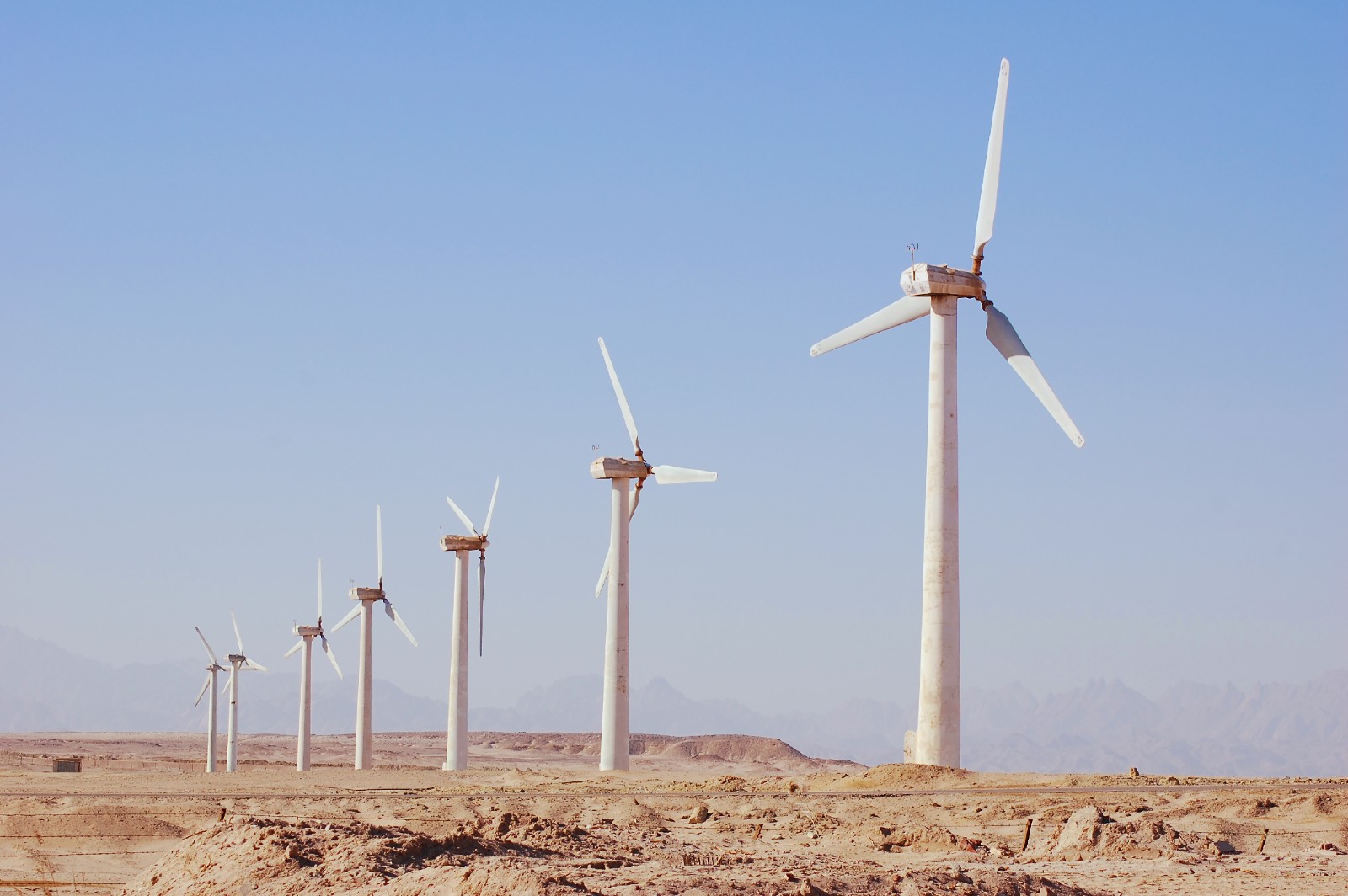
Egypt’s Electricity Ministry and an Orascom Construction-led consortium have signed a land allocation agreement for a 3 GW wind farm in the country, according to a statement. The statement said the consortium — which comprises OC, France’s Engie, and Japan’s Toyota Tsusho Corporation — will be allocated 852 sqm in Sohag. Sources told Al Mal last month that the Egyptian government was set to finalize a land allocation agreement for the wind farm within weeks.
What we know: The consortium will build the 3 GW wind farm under a BOO structure over six phases, and it is set to be fully operational by the end of 2028. The first phase of the project will see the consortium bring 500 MW of wind energy online by 1Q 2026, and the second phase will add on an additional 500 MW by the end of 4Q 2026. A third phase will bring online another 500 MW by 1H 2027, with an additional 500 MW will be operational by 1Q 2028. The consortium is expected to bring the final 1 GW of the project online over two phases by the end of 4Q 2028.
The wind sector has been busy: The Egyptian government signed in July a land allocation agreement with Saudi renewables developer Acwa Power for its planned 10 GW wind energy plant, which will also be located in West Sohag. It also inked in July another land allocation agreement with Norway’s Scatec for its planned 5 GW wind farm in Sohag. The announcement followed a similar agreement in June with a consortium comprising Infinity Power, Masdar, and Hassan Allam Utilities for their planned 10 GW wind farm.
SOLAR
Acwa Power gets the green light from Bangladesh for 300 MW solar farm

Acwa Power-led consortium kicks off operations on Bangladesh’s largest solar farm: The Bangladeshi government approved a plan by an Acwa Power-led consortium to build a USD 430 mn, 300 MW solar energy project in Bangladesh’s southern province Bagerhat, Asharq Business reports, citing a government statement. A timeline for the project has not been disclosed.
The details: Acwa Power will have a 45% stake in the solar power plant, while the Bangladesh Power Development Board (BPDB) will hold a 25% share in exchange for facilitating the land allocation agreement for the project and offtake the clean energy under a 20-year agreement, the news outlet notes. Bangladeshi firms Viyellatex Spinning and Comfit Composite Knit will snap up the remaining stakes in the project, the news outlet added, without specifying the exact shares each company will hold.
Part of larger KSA plans for Bangladesh: Acwa signed an agreement with BPDB to carry out feasibility studies on a larger USD 1 bn, 1 GW solar plant — expected to come online in 2024 — last November. Acwa Power will bring the technical know-how and line up funding for the project, while BPDB will provide administrative support alongside the state-owned Sustainable and Renewable Energy Development Authority. Later in March, the Saudi government and Bangladesh also established a joint business council to support and accelerate cooperation in power generation — including the development of a solar power plant — and other sectors like agriculture and logistics. Bangladesh will need to allocate USD 1.71 bn annually to meet its target of having renewables account for 40% of its electricity mix by 2040.
Acwa Power is aggressively expanding elsewhere in Asia: The company has been investing heavily in a southeast Asian expansion with projects in Indonesia and Thailand, signing power purchase and investment agreements with the National Electric Grid of Uzbekistan for a 1.5 GW, USD 2.4 bn wind energy farm back in 2019. Acwa is also developing a 240 MW wind farm in Azerbaijan with a reported investment of USD 300 mn. In March, Acwa signed an agreement with Kazakhstan’s Sovereign Wealth Fund (Samruk-Kazyna) and the Kazakh Energy Ministry to build and manage a 1 GW wind farm and a battery energy storage facility in the country. That same month, the company signed a USD 2.5 bn power purchase and investment agreement with Uzbekistan's Energy Ministry to develop two solar stations and three storage facilities.
IN OTHER ACWA NEWS- A financial close for Egypt’s Kom Ombo solar plant: Acwa Power has achieved a financial close for its 200 MW Kom Ombo solar project in Egypt’s Aswan, according to a disclosure to Tadawul. The Saudi company sealed a USD 123 mn financing package from the European Bank for Reconstruction and Development (EBRD), OPEC Fund for International Development, the African Development Bank, the Green Climate Fund, the Sustainable Energy Fund for Africa, and the Arab Bank. The financing — which has a set duration of up to 20 years — aims to finance the development and construction of the plant.
About the project: The Kom Ombo plant will be located next to Africa’s biggest solar park, the 1.4 GW Benban complex, in which Acwa is also taking part. It is expected to be commercially operational in January 2024.
INVESTMENT WATCH
A new green energy investment company is launching in KSA thanks to an international alliance

A green coalition in KSA is happening: Saudi Arabian, American, and Chinese firms are launching a green energy investment company named Skytower to support and finance projects in the kingdom, Asharq Al Awsat reported this week. The agreement allows alliance members including US and Chinese non-governmental organizations to access the market and support green energy projects. No financial details or specific projects earmarked for funding were disclosed.
Who is in: The consortium includes energy storage solutions provider Energy Vault, Chinese environmental engineering services provider China Tianying Group (CNTY), and semi-governmental organization EIPC. Abdullah Zaid Al Meleihi, chairman of Saudi Excellence Co, is the Saudi partner of the proposed alliance.
We knew this was coming: A US-China delegation visited Saudi Arabia in late May to explore establishing a Riyadh-based global alliance of multinational companies to invest in the green economy and efforts to reach net zero. The visit came under efforts by Saudi Arabia to put the kingdom on the map for green energy transition.
All part of an ambitious plan by Riyadh: Saudi Arabia aims to become the world’s biggest green hydrogen producer under efforts to diversify its economy away from oil sales. It hopes its USD 8.4 bn utility-scale green hydrogen facility in Neom will help it become a leader in clean fuel in the coming decades. Construction of the first phase of the mega plant will commence “within the next four months,” officials said in May. The plant promises to be the world’s largest utility-scale green hydrogen facility, producing 1.2 mn tons of green ammonia annually. It will source its power needs from renewable energy projects totaling nearly 4 GW and is expected to be operational in 2026. All of the plant’s output is planned for global export, mainly to the EU, specifically Germany, through an exclusive long-term agreement with Air Products.
MACRO PICTURE
Global Air Quality Index offers a glimpse into where pollution levels stand
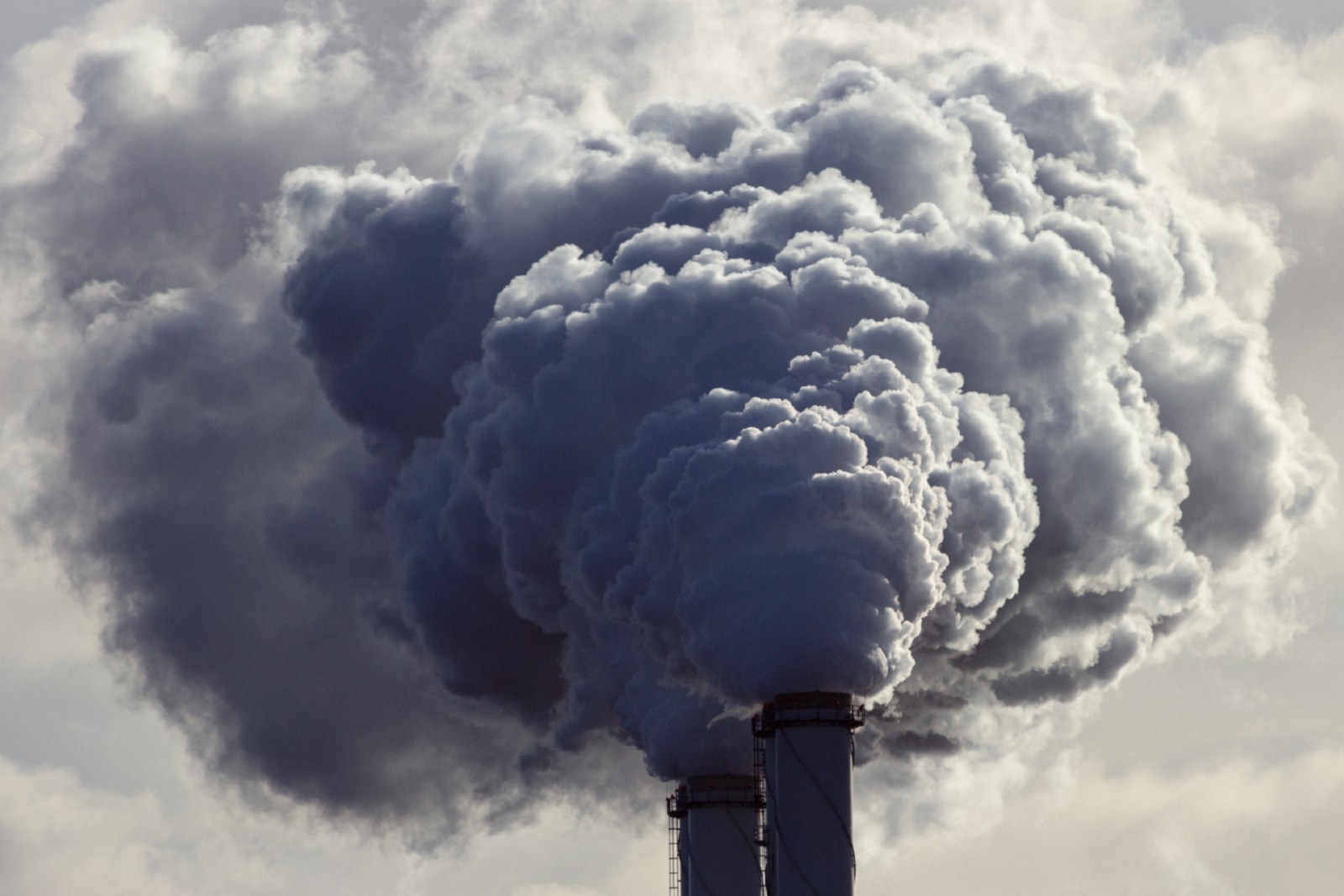
University of Chicago releases its annual Air Quality Index: The University of Chicago's Energy Policy Institute released its latest air quality index (pdf) this week, concluding that reducing particulate pollution — PM2.5 — to comply with the World Health Organization’s 2021 guideline of 5 micrograms per cubic meter (µg/m3) would add on average 2.3 years to the average human life expectancy and save an estimated 17.8 bn lives.
What is PM2.5? The term references inhalable particles in the atmosphere that are usually 2.5 micrometers in diameter or smaller. A concentration of 1 µg/m3 means that one cubic meter of air contains one microgram (10-6 grams) of pollutant.
Findings: 2021 data was a mixed bag, with MENA, China, the EU, and the US improving their air quality y-o-y, while parts of Asia and Africa saw pollution levels soar. In MENA, efforts to comply with WHO guidelines on reducing PM2.5 saw Qatar add an estimated 2.5 years in life expectancy to its population, followed by KSA with two years, Iraq at 1.9, Syria at 1.4, Egypt, Bahrain, and Jordan at 1.3, Kuwait and Lebanon at 1.2, Iran at 1.1, Yemen at one, Palestine at 0.8, Oman at 0.7, Sudan at 0.6, Morocco at 0.4, Tunisia at 0.3, Libya at 0.2, and Algeria at 0.1.
South Asia is most vulnerable: Deteriorating air quality in South Asia is expected to cut life expectancy for people in the region by more than five years on average as air pollution increases by more than 50% compared to levels at the start of the century. People from Bangladesh — the country with the world’s lowest air quality — can expect pollution to shave off 6.8 years of their lives. India is responsible for about 59% of the world's increase in pollution since 2013, and low air quality New Delhi is expected to push down life expectancy by an estimated 10 years at current levels.
Some success stories: Among other notable findings, China had “remarkable success” in improving its air quality, effectively reducing pollution by 42.3% since 2013, and gaining 2.2 years per capita as a result, the report notes. The EU brought down air pollution by 3.5% from 1998 levels, and its populus can expect an increase of 4.5 months of life expectancy because of it. The US slashed its pollution levels by 64.9% compared to 2021 levels, and Americans are expected to add 1.4 years to their life expectancy, according to the report. 75% of air pollution’s impact on global life expectancy is in six countries: Bangladesh, India, Pakistan, China, Nigeria, and Indonesia, according to the research.
ALSO ON OUR RADAR

UAE partners with US company to run cloud-seeding tests: The UAE has launched a month-long campaign in partnership with US-based cloud physics experts Stratton Park Engineering Company to gather crucial data for its cloud-seeding initiative Cloudix, the UAE Research Program for Rain Enhancement Science said. “A group of researchers and pilots will cross-examine the performance of different cloud seeding materials with and without electric charges,” UAE’s National Center of Meteorology (NCM) explained to the National. NCM will use its cloud-seeding aircraft and Spec's own Learjet equipped with advanced instruments and sensors for gathering the needed data. The test flights began at Al Ain International Airport earlier this week and will continue until the end of September, covering airspace in the UAE and parts of Oman, the news outlet said.
How do they do it? Cloud seeding tries to make it rain or snow by putting substances that help water molecules stick together (like silver iodide) into clouds — either by spraying it from a plane or shooting it up from earth. Programs in China and the US show precipitation can increase as much as 10-30% when it works.
The UAE ♥️ cloud-seeding: In 2015, the UAE set up a research center to support new tech developments in the field. The center has funded 11 projects, including one focused on the use of nanotechnology to develop cloud seeding materials.
A bid by the Saudis for lithium metal tech: Saudi Arabia’s Energy Capital Group has announced an undisclosed investment in Boston-based Pure Lithium to establish a supply chain in the Gulf country for its battery made of lithium metal (Li-M) technology, according to a statement. The investment also explores the possibility of forming a JV between the two companies in the future, the statement notes, without providing details on the size of the investments being injected by Energy Capital.
About the tech: The brine-to-battery tech extracts lithium from oilfield brine and produces a battery-ready lithium metal electrode in a less expensive and sustainable process. The entire battery can be made in only three days, compared to the longer 500-day process to manufacture lithium-ion, according to the company. It also eliminates the need for graphite, nickel, cobalt, and manganese, and is lighter in weight while holding two to four times the energy density of the traditional Li-ion battery, the statement said.
OTHER STORIES WORTH KNOWING ABOUT THIS MORNING-
- Trina Solar supplies solar panels KSA desalination plant: China’s Trina Solar has supplied the 45.5 MW solar station powering the Jubail 3A water desalination plant with Vertex N 605W solar modules. The modules have a capacity of more than 700 watts, as opposed to the average 250 to 400 watts. (Statement)
- Lucid slashes EV prices in Saudi Arabia: KSA’s Public Investment Fund-backed EV maker Lucid has lowered the selling prices of its electric vehicles in Saudi Arabia by 9% to 11% on the back of price adjustments in global sales prices. (Asharq Al Awsat)
AROUND THE WORLD

Japan is going big on green hydrogen: Japan-based Mitsui & Co, Mitsui Chemicals, IHI Corp, and Kansai Electric Power Co have launched a joint study to establish green hydrogen and ammonia production value chains in Osaka, according to a statement. The firms will first conduct surveys and collaborate on developing facilities for the storage and transport of ammonia in the coastal industrial zone before expanding operations to the Kansai and Setouchi regions. The agreement follows an announcement a day earlier by Japan’s Eneos and Osaka Gas, who will similarly study construction of a large-scale hydrogen-derived e-methane production plant in Osaka, Reuters reported.
REMEMBER- Japan will source a chunk of its ammonia from MENA: Mitsui signed an agreement with Saudi mining company Ma’aden last March to become the first commercial supplier of blue ammonia to Japan, and earlier in January the Japanese corporation signed a shareholder agreement with Ta’ziz — a joint venture between Adnoc and ADQ — GS Energy, and Fertiglobe to construct a facility to produce some 1 mn tons of blue ammonia per year.
CALENDAR
AUGUST 2023
29 August-1 September (Tuesday-Friday): Third meeting of the COP27 Transitional Committee, Dominican Republic.
SEPTEMBER 2023
4-5 September (Monday-Tuesday): GCF Private Investment for Climate Conference, Nairobi, Kenya.
4-6 September (Monday-Wednesday): Sustainable Maritime Industry Conference, Jeddah, Saudi Arabia.
4-6 September (Monday-Wednesday): Africa Climate Summit, Nairobi, Kenya.
5-7 September (Tuesday-Thursday): Global Water, Energy and Climate Change Congress (GWECCC), Manama, Bahrain.
7-8 September (Thursday-Friday): Annual Regional Sustainability and Development Forum, Cairo, Egypt.
9-10 September (Saturday-Sunday): G20 Heads of State and Government Summit, New Delhi, India.
9-20 September (Saturday-Wednesday): 2023 Sustainable Development Goals Summit, New York, USA.
11-13 September (Monday-Wednesday): Global Congress on Renewable and Non-Renewable Energy, Dubai, UAE.
12-13 September (Tuesday-Wednesday): Industry Transition 2023, Pittsburgh, USA.
12-15 September (Tuesday-Friday): WTO Public Forum, Geneva, Switzerland.
13-14 September (Wednesday-Thursday): Hydrogen Egypt Summit, Nile Ritz Carlton, Cairo.
18-19 September (Monday-Tuesday): The Enterprise Finance Forum, Cairo, Egypt.
19-21 September (Tuesday-Thursday): World Power-to-X Summit, Marrakesh, Morocco.
28 September (Thursday): International Energy Agency Critical Minerals and Clean Energy Summit, Paris, France.
Chariot Limited and Total Eren’s feasibility study on a 10 GW green hydrogen plant in Mauritania to be completed.
Egypt set to launch alliance to shore up climate financing in developing countries
OCTOBER 2023
2-5 October (Monday-Thursday): ADIPEC Decarbonization Accelerator, Abu Dhabi, UAE.
4 October (Wednesday): Arabia CSR Gala Awarding Ceremony, UAE.
4-5 October (Wednesday-Thursday): Future Sustainability Forum, Dubai, UAE.
8-10 October (Sunday-Tuesday): Saudi Green Building Forum, Riyadh, Saudi Arabia.
10-11 October (Tuesday-Wednesday): Green Energy Africa Summit, Cape Town International Convention Centre 2, Cape Town, South Africa.
8-12 October (Sunday-Thursday): MENA Climate Week, Riyadh, Saudi Arabia.
9-15 October (Monday-Sunday): World Bank/IMF 2023 Annual Meetings, Marrakech, Morocco.
10-12 October (Tuesday-Thursday): Autonomous E-Mobility Forum, Doha, Qatar.
16-18 October (Monday-Wednesday): Climate Week, Rome, Italy.
18-20 October (Wednesday-Friday): Morocco and Belgium business meeting on green hydrogen, Tangiers, Morocco.
17-18 October (Tuesday- Wednesday): Critical Minerals Africa Summit, Cape Town, South Africa.
17-20 October (Tuesday-Friday): Fourth meeting of the COP27 Transitional Committee, TBD.
25-26 October (Friday-Saturday): Offshore & Floating Wind Europe 2023, London, United Kingdom.
29 October- 2 November (Sunday-Thursday): Cairo Water Week, Cairo, Egypt
31 October – 2 November (Tuesday-Thursday): World Hydropower Congress, Bali, Indonesia.
NOVEMBER 2023
1-3 November (Wednesday-Friday): Forbes Middle East Sustainability Leaders Summit 2023, Abu Dhabi, UAE.
9-10 November (Thursday-Friday): International Renewable Energy Agency Investment Forum, Uruguay.
9-15 November (Thursday-Wednesday): Intra-African Trade Fair 2023, Cairo, Egypt.
15-17 November (Wednesday-Friday): WETEX and Dubai Solar Show, Dubai, UAE.
15-18 November (Wednesday-Saturday): DEWA’s First MENA Solar Conference, Dubai, UAE.
20-24 November (Monday-Friday) International Civil Aviation Organisation’s Aviation and Alternative Fuels conference, Dubai, UAE.
27-30 November (Monday-Thursday) Abu Dhabi Finance Week (ADFW), Abu Dhabi, UAE.
28-29 November (Tuesday-Wednesday): World Green Economy Summit (WGES), Dubai, UAE.
30 November – 12 December (Thursday-Tuesday): Conference of the Parties (COP 28), Dubai, UAE.
DECEMBER 2023
4 December (Monday): Saudi Green Initiative Forum, Dubai, UAE.
12-14 December (Tuesday-Thursday): Green Hydrogen Summit Oman, Oman Convention and Exhibition Center, Muscat, Oman.
18-20 December (Monday-Wednesday): Saudi Arabia Smart Grid Conference, Hilton Riyadh Hotel & Residences, Riyadh, Saudi Arabia.
FEBRUARY 2024
26-28 February (Monday-Wednesday): Management and Sustainability of Water Resources, Dubai, UAE.
APRIL 2024
16-18 April (Tuesday-Thursday): World Future Energy Summit, Abu Dhabi, UAE.
23-25 April (Tuesday-Thursday): Connecting Green Hydrogen MENA, Dubai, UAE.
DECEMBER 2024
2-13 December (Monday-Friday): Conference of the Parties (COP16) to the United Nation Convention to Combat Desertification, Riyadh, KSA.
EVENTS WITH NO SET DATE
2023
Mid-2023: Oman set to sign contracts for green hydrogen projects.
Mid-2023: Sale of Sembcorp Energy India Limited to consortium of Omani investors to close.
Phase C of the 900-MW of the Mohammed bin Rashid Al Maktoum Solar Park in Dubai to be completed.
Saudi Basic Industries Corporation (Sabic) steam cracker furnace powered by renewable energy to come online.
2024
End-2024: Emirati Masdar’s 500 MW wind farm in Uzbekistan to begin commercial operations.
QatarEnergy’s industrial cities solar power project will start electricity production.
2025
International Union for Conservation of Nature World Conservation Congress, Abu Dhabi, UAE.
UAE to have over 1k EV charging stations installed.
2026
UITP Global Public Transport Summit, Dubai, UAE.
1Q 2026: QatarEnergy’s USD 1 bn blue ammonia plant to be completed.
End-2026: HSBC Bahrain to eliminate single-use PVC plastic cards.
2027
MENA’s district cooling market is expected to reach USD 15 bn.
2030
UAE’s Abu Dhabi Commercial Bank (ADCB) wants to provide AED 35 bn in green financing.
UAE targets 14 GW in clean energy capacity.
Tunisia targets 30% of renewables in its energy mix.
Qatar wants to generate USD 17 bn from its circular economy, creating 9k-19k jobs.
Morocco’s Xlinks solar and wind energy project to generate 10.5 GW of energy.
2035
Qatar to capture up to 11 mn tons of CO2 annually.
2045
Qatar’s Public Works Authority’s (Ashghal) USD 1.5 bn sewage treatment facility to reach 600k cm/d capacity.
2050
Tunisia’s carbon neutrality target.
2060
Nigeria aims to achieve its net-zero emissions target.
Enterprise Climate is available without charge thanks to the generous support of HSBC (tax ID: 204-901-715), the leading corporate and retail lender in Egypt; and Infinity Power (tax ID: 305-170-682), the leading generator and distributor of renewable energy in Africa and the Middle East. Enterprise Climate is delivered Mon-Thurs before 4 am UAE time. Were you forwarded this copy? Sign up for your own delivery at climate.enterprise.press. Contact us on climate@enterprisemea.com.


